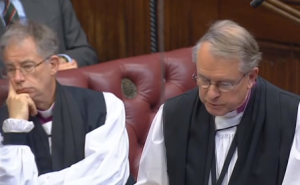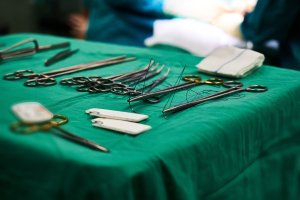Thousands of children are languishing in unregistered faith schools.
These schools prioritise fundamentalist religion over the education and welfare of children.
The scandal of unregistered schools must be addressed.
Some religious institutions operate schools which are not registered with the Department for Education, despite this being a legal requirement.
Schools are left unregistered to avoid regulations and inspections, so they can teach a very narrow, religion-based curriculum without oversight. This severely limits children's future options, as children leave these schools with very poor literacy, no formal qualifications and no skills or experience for life in modern Britain.
The lack of scrutiny also presents major safeguarding concerns. Children have been taught in unsafe conditions and subjected to physical punishment in these schools. The curriculum may also teach extremist, regressive and discriminatory dogma.
In 2019, Ofsted estimated as many as 6,000 children were being educated in unregistered settings. But the number could be even higher. Approximately 86,300 children and young people were electively home educated nationally during the year 2019/20. There is little regulation of home education, so many of these children could in fact be attending an unregistered school.
Some unregistered schools exploit loopholes in the law to avoid registration and operate at the margins of the law as an "out of school educational setting". Although many out of school settings, including tuition centres and supplementary schools, provide an excellence service, a minority put children's welfare at risk.
We are working to end the harms caused by unregistered schools by campaigning for greater powers for Ofsted tackle these settings, the elimination of loopholes to force more schools to register, and improved regulation of elective home education.
Take action!
1. Suspect an unregistered school? Report it!
Unregistered schools are illegal and pose a serious threat to children's wellbeing. If you think you know of a possible unregistered school, please report it to the schools inspectorate Ofsted.
If you are aware of children in imminent danger, please call 999 and inform the police.
2. Share your story
Tell us why you support this campaign, and how you are personally affected by the issue. You can also let us know if you would like assistance with a particular issue.
3. Join us
Become a member of the National Secular Society today! Together, we can separate religion and state for greater freedom and fairness.
Latest updates
NSS criticises move to entrench faith school protections in law
Posted: Wed, 25 May 2022 15:02
The National Secular Society has criticised a move to enshrine protections for the ethos of faith schools into law as a missed opportunity for child rights.
The Schools Bill will put into law that religious institutions in England must have a "clearly defined role" in the running of schools with a religious character if they become academies.
At present these protections only exist in the funding agreements for academies and not in primary legislation. Religious institutions which control faith schools have complained these "weaker arrangements" hold back some faith schools from converting to academies.
There are no plans for equivalent laws to protect the secular, community ethos of academies without a religious character.
The Schools Bill will also ensure faith schools which become academies provide religious education (RE) and collective worship "in accordance with the tenets and practices" of their religion.
The NSS is campaigning for reform of RE so that it is broad, balanced and objective in all schools, and to abolish laws requiring daily acts of collective worship. The United Nations have recommended the UK repeal its laws requiring collective worship in all state schools.
But the government has said that a change in law on collective worship is "unnecessary", adding that collective worship "encourages pupils to reflect on the concept of belief".
Bishops' bench "very grateful" for faith school protections
During the bill's second reading in the House of Lords on Monday, Paul Butler and Steven Croft (pictured), who sit in the Lords as of right as Anglican bishops, welcomed the move.
Butler said the provisions set out how the "settlement between Church and state continues" and said the Church of England was "very grateful" for the way in which ministers have engaged with the Church so that "areas of policy with specific relevance to the future of schools on sites that have been provided by the Churches are addressed".
But other peers spoke out in favour of more inclusive education. Baroness Joan Bakewell highlighted the difficulties faced by nonreligious parents who have no option but to send their children to faith schools. She said the right of withdrawal from RE and collective worship is "demeaning and discriminatory, and often results in children languishing aimlessly in empty classrooms", and said the situation "needs to be challenged".
Baroness Molly Meacher said: "I hope this House can ensure that the content of religious education and worship in all schools reflects the full ambit of freedom of religion and belief and that a pluralistic and critical approach is adopted".
Cracking down on unregistered schools
The NSS has welcomed a separate provision in the Schools Bill which will give authorities greater powers to tackle illegal unregistered schools – something the NSS has long lobbied for.
Peers also welcomed the bill. Baroness Meacher said: "We know that the education provided in many unregistered religious schools is narrow in scope, predominantly scriptural in content and deeply conservative, intolerant and extreme in outlook.
"Because these schools have been able to evade inspections, bad practices of all kinds appear to have developed. Former pupils of such illegal settings told an all-party parliamentary group in December of the physical, emotional and sexual abuse they had suffered. They also talked of the narrow religious curriculum, with no English, maths or science in their school experience".
NSS comment
NSS chief executive Stephen Evans said: "We very much welcome the measures to tackle unregistered religious schools. We look forward to working with the government through the bill's passage to ensure the legislation is robust enough to put an end to children being systematically undereducated in unsafe illegal schools.
"But the decision to freshly legislate for collective worship and faith-based RE is alarming.
"In its last periodic examination of the UK's human rights record, the UN Committee on the Rights of the Child asked what steps the government was taking to repeal such laws, but here they are further entrenching them in statute. Meanwhile, there are no such protections for the secular ethos of community schools.
"Any new bill to raise education standards should also raise human rights standards by removing archaic requirements for children to take part in religious worship."
The NSS has met with Department for Education to discuss their concerns with the bill.
Arrests made at unregistered school over FGM concerns
Posted: Fri, 13 May 2022 14:16
The National Secular Society has expressed shock that female genital mutilation has been suspected at an unregistered school.
Police investigated the school in Birmingham on Tuesday after Ofsted inspectors raised concerns about "possible illegal practices".
The inspectors found a locked room with a bed and medical equipment at the unregistered school, according to Mail Online. Police said two men had been arrested on suspicion of being involved in female genital mutilation.
A third man was arrested yesterday as part of the investigation. All three men have been bailed with "strict conditions".
Female genital mutilation (FGM)
Female genital mutilation (FGM) is a procedure where the female genitals are deliberately cut for non-medical reasons. Some Muslims consider it a religious requirement.
All forms of FGM are illegal in the UK.
A 2015 study estimated that around 60,000 girls aged 0-14 were born in England and Wales to mothers who had undergone FGM. It also found that around 10,000 girls aged under 15 who have migrated to England and Wales are likely to have undergone FGM.
Unregistered schools
It is illegal to run a full-time school without registering it with the Department for Education.
However, some religious groups operate unregistered schools in order to prioritise religious inculcation while avoiding scrutiny under the independent school standards.
This enables unregistered faith schools to teach a strictly religion-only curriculum, including extremist content, and to subject children to harmful activities including corporal punishment.
On Tuesday a bill was announced in the Queen's Speech that would give the government greater powers to tackle unregistered schools.
NSS comment
NSS chief executive Stephen Evans said: "We've known for a long time that unregistered schools expose children to harm. But the idea that children may be subjected to female genital mutilation at these schools is horrific and disturbing on a whole new level.
"FGM is a barbaric and torturous procedure that causes lifelong pain and suffering.
"This shocking incident demonstrates a much more robust approach to illegal schooling and harmful cultural practices is necessary to uphold the human rights of children, particularly those growing up in insular religious communities."
Image: Engin Akyurt from Pixabay




